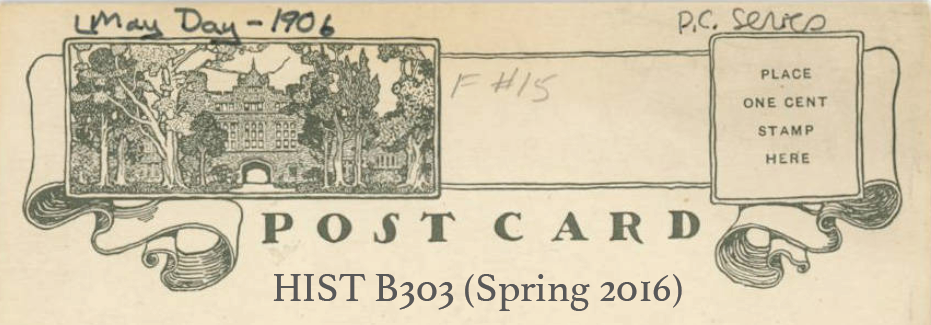Before engaging with the documentary and readings for this week’s class, I don’t believe I had any real awareness of Bryn Mawr’s summer school for women workers in industry. I had seen the blue historical sign up next to admissions–probably most of us have–and had read it, but the sign failed to impress upon me the full importance and legacy of the summer school. The documentary and readings on the summer school answered a lot of questions I didn’t even know I had about how the summer school was formed, what students’ and faculty members’ lives were like at the summer school, and the events that led to its closing. However, now that I’ve learned far more about the summer school than what one historical sign could ever tell, I find myself with yet more questions.
First, I wonder about the lives of maids and servants at Bryn Mawr’s summer school. I can count on one hand the number of things I learned about their lives from this week’s materials–they didn’t have to make summer school students’ beds or serve them food like they would have for year-round students, and the summer school students one year demanded that the maids receive better living quarters because they were living on the top floors of dorms, which were (and continue to be) notoriously hot. I wanted to know, firstly, how the administration responded to that request, but I don’t believe the documentary or readings provided an answer. More generally, I found myself frustrated that, when given materials aimed at uncovering silences in Bryn Mawr’s history in a course dedicated in part to exploring uncovering silences, only some silences were finally given voice. Was there so little material on maids and servants because that material doesn’t exist in any archives? Are we just not trying hard enough to find that material? Why, when so many former summer school students and faculty came together for a reunion and were interviewed about their experiences, did they barely discuss the roles maids and servants played? Did they talk about this subject more, but the interviews weren’t included in the documentary? Why was only one former summer school maid interviewed, and only given about 5 seconds of screen time? How were the summer school maids and servants hired? Did they also work at Bryn Mawr year-round? If making students’ beds and serving them in the dining halls weren’t their responsibilities, what were? Did they do work similar to what our housekeepers do today? I suppose the best way to answer some of my questions might be to go into the archives myself, to do my best to uncover these silences, but it saddens me that the people who have already undertaken efforts to tell the stories of Bryn Mawr’s summer school seemed to have relatively little concern for the lives of maids and servants there.
Second, I was struck, in the documentary, by the singing of Bread and Roses juxtaposed with the strikes and demonstrations Bryn Mawr summer school students and faculty participated in. Ever since learning the history of Bread and Roses as a song of the labor movement, I’ve felt somewhat uncomfortable singing it at Step Sing, as if we have appropriated this song, largely ignorant of the decades of labor organizing behind it, as a recognition of the culmination of our college lives, so different from the lives of the women whose experiences are told in the song. However, I don’t know when, or why, Bread and Roses became the senior song at step sings. Watching “The Women of Summer” made me wonder if it somehow came to Bryn Mawr through the summer school students and their labor activism? If this were true, I would feel, when I sing Bread and Roses at step sing, that at least I am calling on a history of students here, consciously remembering and celebrating their struggles. But of course most students still would sing the song not knowing about the summer school, and I wish more people knew about the powerful organizing in which summer school students and faculty (and maids and servants? Again, we don’t know) engaged.
